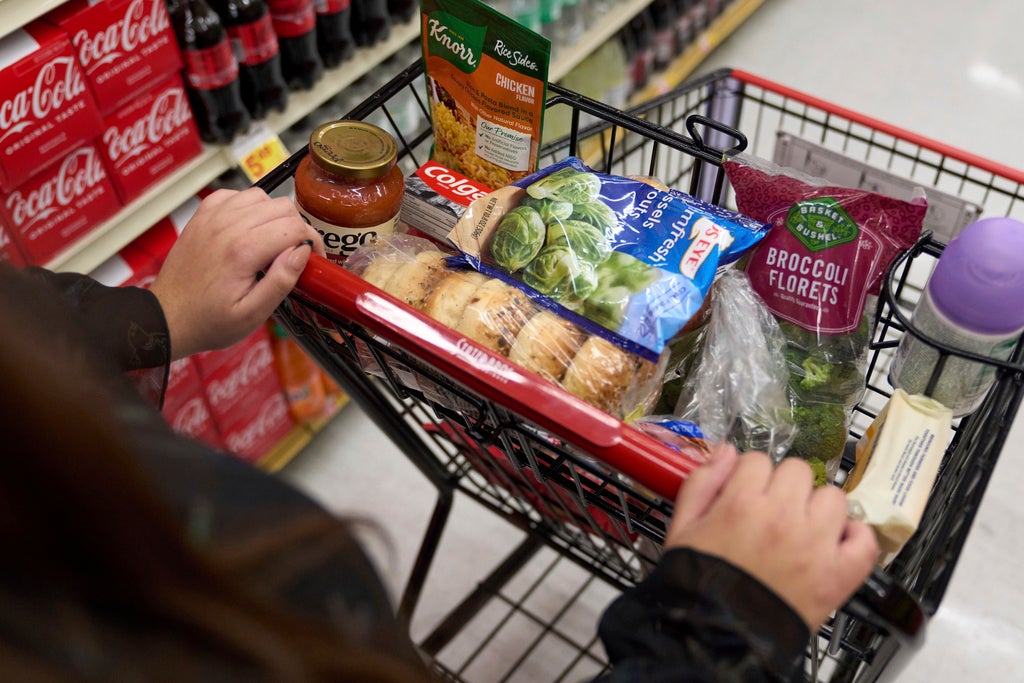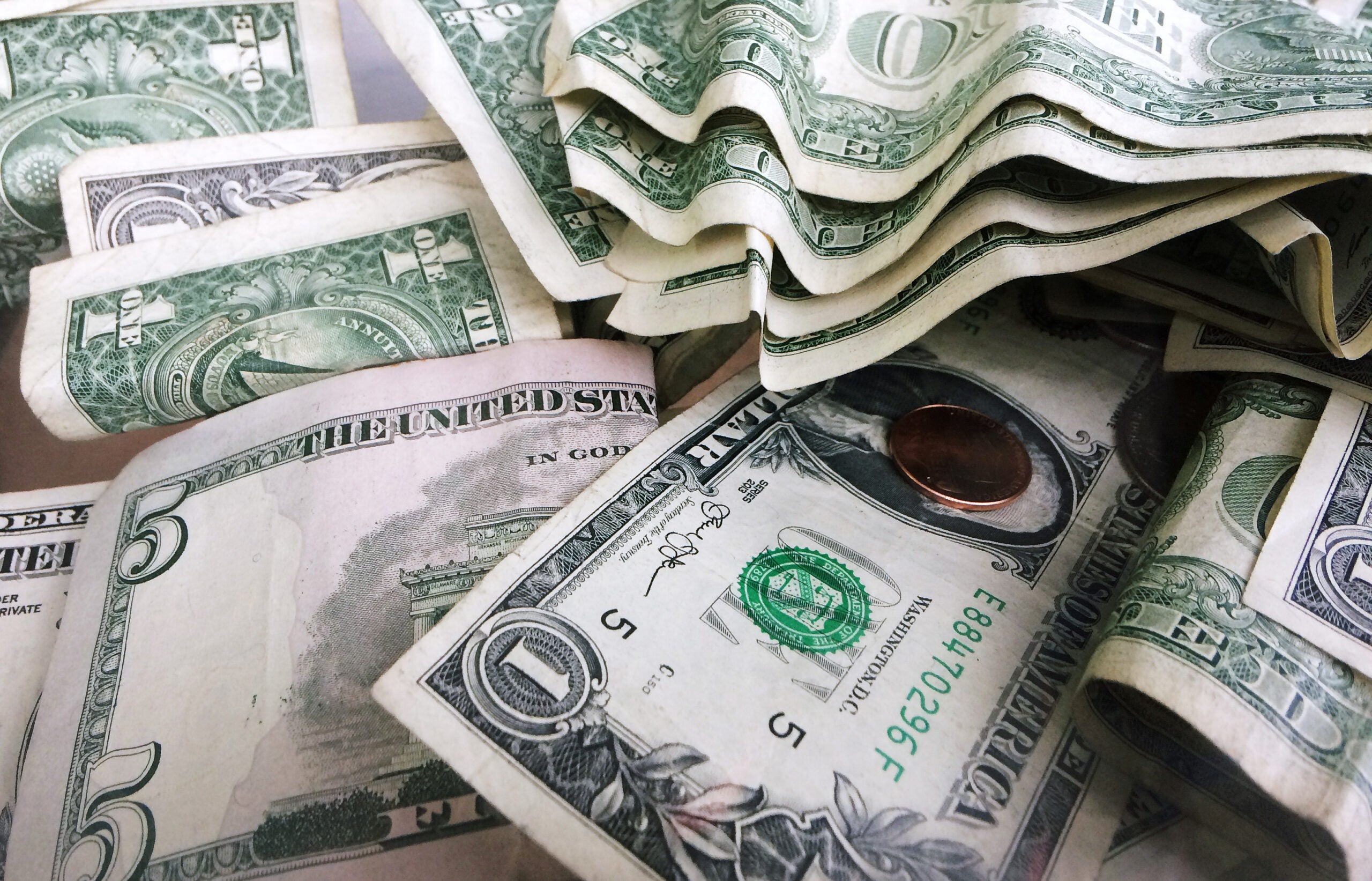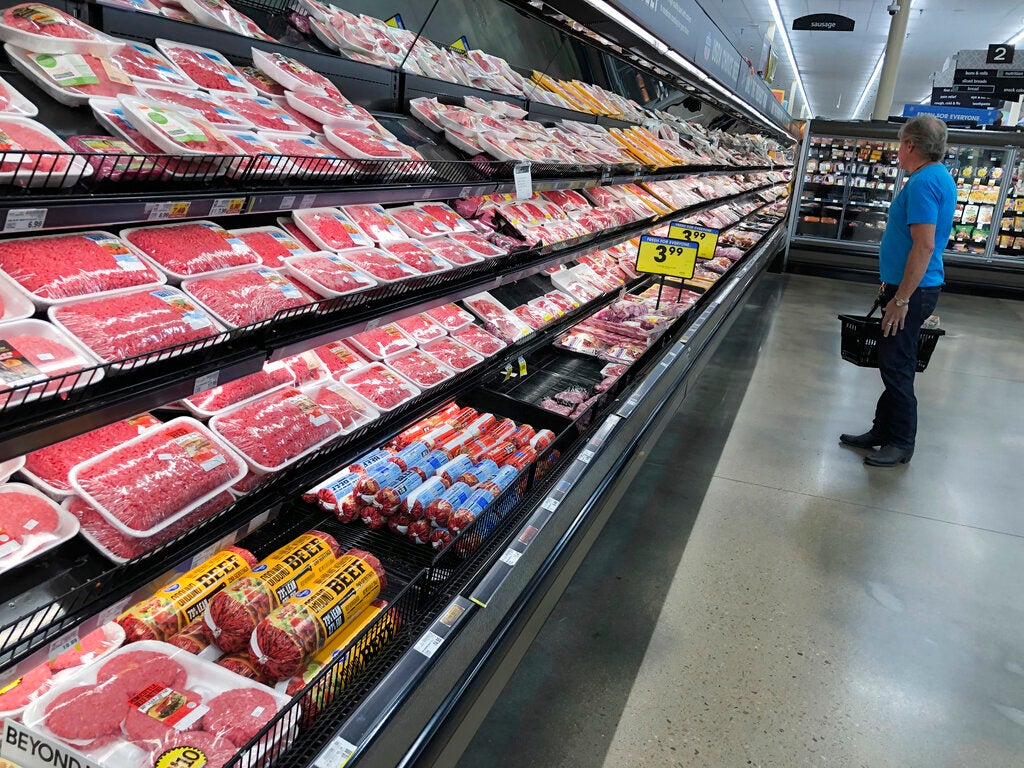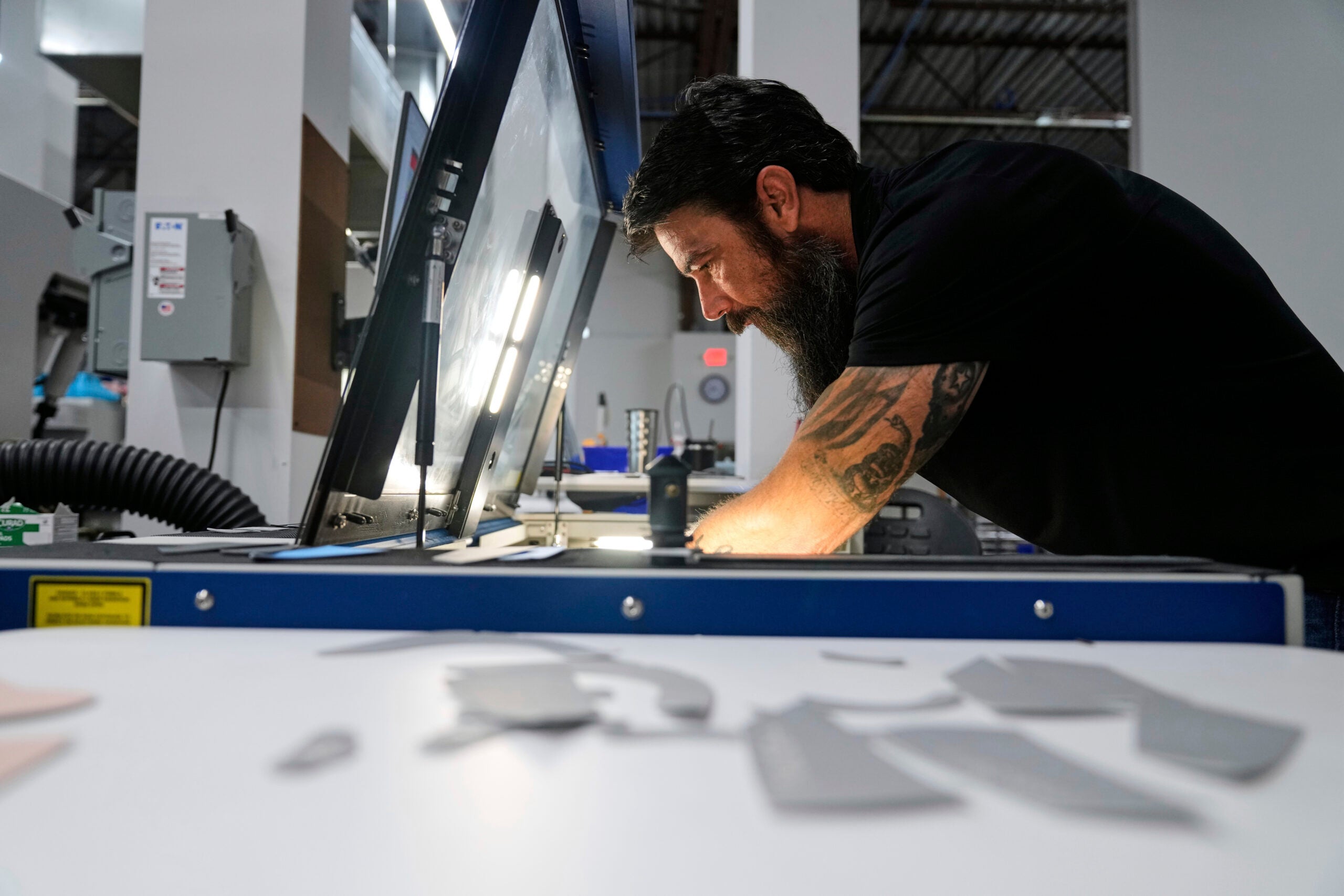Oshkosh resident Tracy Heuring and her husband have both received a few wage hikes in the last couple years, but she said it still doesn’t feel like they’re getting ahead.
With inflation, she said, “it’s almost as if you didn’t receive a raise in the first place.”
“I’m in my 50s, and I’m to the point now where I don’t allow myself to get overly frustrated and angry because I do realize, in the grand scheme of things, that this shall pass,” Heuring said.
News with a little more humanity
WPR’s “Wisconsin Today” newsletter keeps you connected to the state you love without feeling overwhelmed. No paywall. No agenda. No corporate filter.
Heuring and her husband aren’t the only Wisconsinites who feel wary about finances in recent years.
Roughly two-thirds of Wisconsin voters have a negative view of the economy, according to the Marquette University Law School poll released last month
The poll identified the economy as the top issue for Wisconsin voters heading into the 2024 election cycle. But only about 33 percent had a positive view, up slightly from the 27 percent last November.
That’s bad news for President Joe Biden as he runs for reelection in the coveted swing state, said Aaron Weinschenk, chair of the political science department at the University of Wisconsin-Green Bay.
“People reward and punish the incumbent party for the state of the economy, regardless of how much control they actually have over it, so it’s definitely a concern if you’re the party in power,” he said.
Worries about inflation have overridden more positive news on rising wages and low unemployment.
The Marquette poll found that 43 percent of respondents had consumed “a lot” of news coverage about inflation. But only 22 percent had consumed “a lot” of news coverage about unemployment.
Stephen Brown, who is moving to Oshkosh from Rockford, Illinois, said he doesn’t think the economy is as bad as Republicans say, but it’s not quite as good as Democrats say either.
“I don’t think it’s doing great,” Brown said. “It’s just sort of plodding along, (but) it’s not terrible.”
Oshkosh resident Mary Jones was a little more optimistic. She said inflation has prevented her and her husband from eating out at restaurants as much as they used to, but she feels pretty good about where things are at.
“I think the country’s economy is on an upswing, but I think the inflation hides that for some people,” she said.
The poll also shows views of the issue are colored by partisanship – 90 percent of Republicans surveyed had a negative view of the economy compared to 39 percent of Democrats. Among independents, 67 percent had a negative view.
Weinschenk said the partisan gap in sentiment is pretty common and has increased over time as political polarization has increased.
“You actually even see it when you ask people about their personal finances,” he said. “They’ll say that their personal finances are better when the president or governor of their party is in power.”
While polling shows Wisconsin voters have a mostly grim view of the economy, economists say the United States’ recovery from the COVID-19 pandemic has been stronger than that of many of its peer countries.
The U.S. economy grew faster than any other large advanced economy in 2023, according to the International Monetary Fund’s World Economic Outlook, published in January. The report estimates that a few “emerging market and developing economies,” like China and India, did grow faster than the United States last year.
Menzie Chinn, a macroeconomist at UW-Madison, said much of the United States’ strong recovery can be attributed to federal stimulus programs.
“We were much more aggressive, so it’s no wonder that we’ve recovered in the immediate aftermath of the pandemic much more rapidly,” he said.
But the stimulus that helped the economy recover has contributed to inflation. Chinn said government spending accounts for between one-third and half of the inflation the U.S. has experienced since 2021. He said supply shocks, such as Russia’s invasion of Ukraine and China maintaining a “zero COVID” policy longer than expected, also accounted for about a third of U.S. inflation.
Inflation has come down since mid-2022 from 9 percent to 3.5 percent in March. But since January 2021, Chinn said the prices of groceries in the state have risen slightly faster than they have nationally.
Because average incomes in the Midwest are lower than the nation as a whole, Chinn said Wisconsinites allocate a higher portion of their spending to things like groceries and gasoline.
“You can’t fault people for feeling that prices are too high,” he said. “Maybe they feel increases in inflation more profoundly than decreases inflation. And if that’s the case, for whatever reason, they’re going to feel a little bit sour.”
Wisconsin Public Radio, © Copyright 2025, Board of Regents of the University of Wisconsin System and Wisconsin Educational Communications Board.







